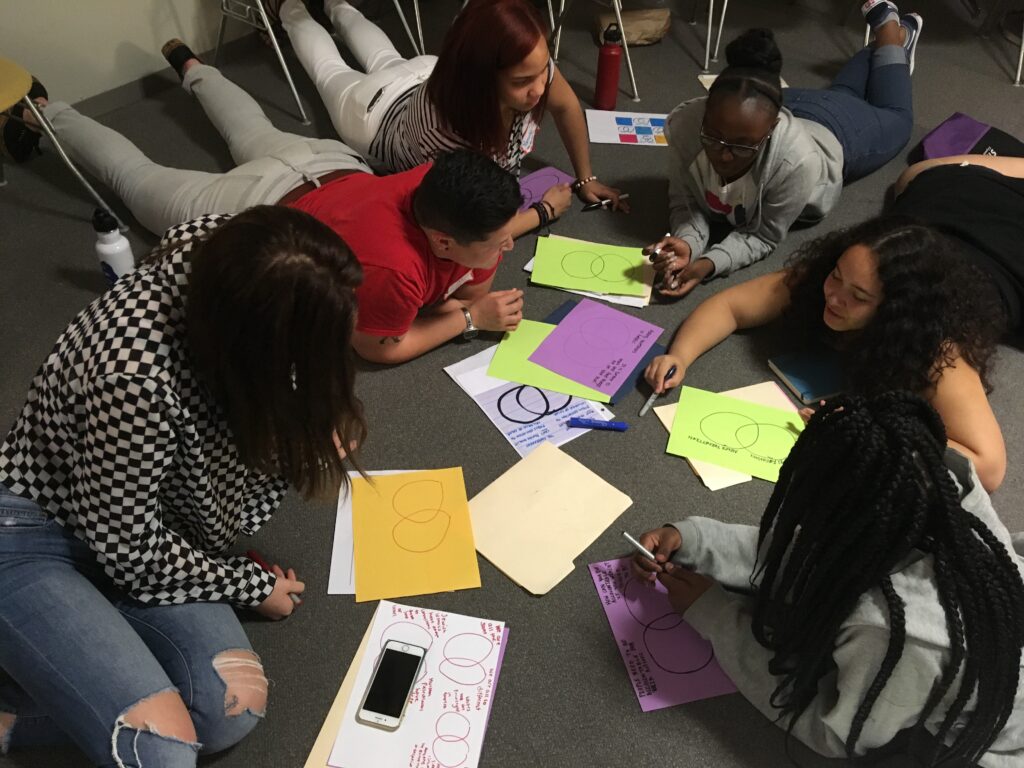
On Our Terms is a participatory action research project built by students, parents, educators, and activists about what it takes to nurture restorative justice culture, collective safety, and healing in schools. Spearheaded by the Restorative Justice Initiative, a Partner Project of the Fund for the City of New York, and community partners: Dignity in Schools-NY, the CUNY Public Science Project and Teacher’s Unite, we have launched an interactive website showcasing On Our Terms research findings and tools for action.
After years of relentless organizing, the movement for restorative justice has been gaining momentum in schools and education policy across the country. This represents a departure from a decades-long national trend of schools relying on surveillance, securitization, and “zero-tolerance” suspensions, expulsions–and even arrests–as disciplinary measures. These policies had devastating consequences, with research documenting many harmful outcomes for suspended students: worse academic performance, higher rates of dropout/pushout, and increased likelihood of future involvement with the criminal legal system, contributing to what’s commonly referred to as the “school-to-prison pipeline” (STPP). With disproportionately high rates of suspension for Black, Latinx, and Native American students, students with disabilities, LGBTQ+ students, and English Language Learners, these young people shoulder the burden of these harmful approaches to school discipline. At the same time, suspension is not shown to increase safety in the broader school community, decrease student misbehavior, or lead to academic gains for non-suspended students.
In New York City and nationally, organizers and advocates have demanded an end to the school-to-prison pipeline and investment in restorative justice, and there has been some real progress over the past several years. As this movement gains steam, we want to make sure that it isn’t watered down. School communities who have long been leading restorative justice work must have a real say in what restorative justice looks like in schools; they know that restorative justice is about more than reducing suspensions, but a whole new way of doing school.
Built by an intergenerational group of New York City students, parents, educators, and activists, On Our Terms was shaped by the wisdom of first-hand experience with restorative justice and activism. Moving beyond buzzwords and platitudes, we spoke with youth, educators, and parents to dig into the messy, challenging, and rewarding experience of restorative justice in schools to paint a clearer picture of what restorative justice can look like, when it’s On Our Terms.